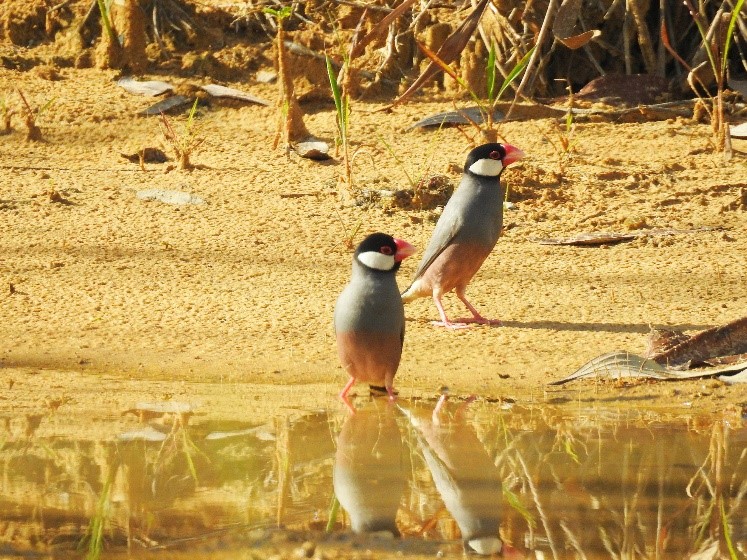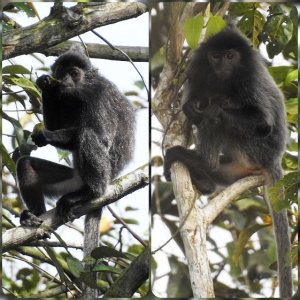30
May

Balikpapan – PT Pertamina Hulu Kalimantan Timur (PHKT) continues to carry out its biodiversity protection program within its oil and gas operation area, Northern Operation Area (Daerah Operasi Bagian Utara/DOBU) and Southern Operation Area (Daerah Operasi Bagian Selatan/DOBS), as part of the environmental conservation in line with the Environment, Social & Governance (ESG) principles application.
The DOBU biodiversity program covered a conservation area of 430.45 Ha in the Santan Terminal and Kersik Beach Mangrove area with featured programs such as Endemic Animals Conservation (Pelestarian Aneka Hewan Endemik/PAHE), Silvered Leaf Monkey (Lutung Kelabu) Conservation and Kersik Beach Mangrove Conservation. Meanwhile, the DOBS biodiversity program covered a conservation area of 195.02 Ha in the Lawe-Lawe Terminal, Kampung Baru Mangrove and Balikpapan City Forest with three featured programs: Plants and Animals Conservation (Perlindungan Aneka Tumbuhan dan Hewan/PATUH), Caring for Growing and Green Earth (Rawat Tumbuh dan Hijaukan Bumi/RATU BERSEMI) and Animals and Plants House Design (Desain Rumah Hewan dan Tumbuhan/DERANA).
Zona 10 General Manager, Djudjuwanto, said that the conservation efforts were the duty and responsibilities of all stakeholders. Therefore, the company also involved the regional government and surrounding communities in the biodiversity program.
“We are committed to apply the ESG principles in each of our oil and gas operations and business activity to be able to produce a sustainable energy for Indonesia. We are collaborating with all stakeholders to protect the safety and security of our human resources and company assets, that are considered as national vital objects, and environmental sustainability,” Djudjuwanto said.
“In 2021, we received the Gold and Green PROPER Awards from the Ministry of Environment and Forestry for our good performance in environmental management and community development,” he added.
The DOBU biodiversity ecosystem is a combination of heath and lowland forest located in the coastal area with the addition of mangrove area in the North and South Canals. The area is home to a few flora and fauna native to the kerangas forest such as nepenthes (Nepenthaceae) and several types of birds such as golden-bellied gerygone (Gerygone sulphurea), river crows (Todirhamphus chloris) and grey heron (Ardea cinerea). It is also home for the Rhizopora mucronata mangrove variant in the North and South Canals of the Santan Terminal.
Similar with the DOBU area, the ecosystem in the DOBS Lawe-Lawe Terminal biodiversity conservation area is a mix between heath and lowland forest located in the coastal area. More than 50% of the Lawe-Lawe Terminal Area consisted of young secondary forest that could potentially become a wildlife habitat.
PHKT HSSE Manager, Sidik Mastrilianto, explained that the biodiversity monitoring was conducted once a year to understand the biodiversity status in the designated conservation areas to reflect the flora and fauna and ecosystem condition.
“By continuing to enrich the monitoring areas, we found a tendency of increasing vegetation. The vegetation diversity index also increased in the past two years, all in the form of seedling, stake and tree life phase,” he said.
A few protected types of flora in the area in the 2017-2021 biodiversity conservation program include: agarwood (Aquilaria malaccensis), red balau (Shorea balangeran), lai (Durio kutejensis) and simpur (Dillenia borneensis). As for the protected types of fauna include; the Javan myna (Acridotheres javanicus), silvered leaf monkey (Trachypithecus cristatus), the Java sparrow (Lonchura oryzivora), dan the Sambar deer (Cervus unicolor).
“The fauna diversity status is obtained through the bird observations, herpetofauna activities, mammalia observations and data collection from various sources showed an increase (in the number of animals). This is such an exhilarating information for PHKT’s biodiversity program’s continuity,” he said.
PT Pertamina Hulu Kalimantan Timur (PHKT) is a subsidiary of PHI that conducts upstream oil and gas operations and business according to the ESG principles in the East Kalimantan & Attaka Block in East Kalimantan. PHKT, along with PHI’s other subsidiaries and affiliates, has conducted innovative Corporate Social Responsibility programs in the economy, education, healthcare, environmental, infrastructure sectors and disaster response to support sustainable community empowerment and achieve the Sustainability Development Goals (SDGs). PHI is headquartered in Jakarta. Further information about PHI is available on https://phi.pertamina.com.
